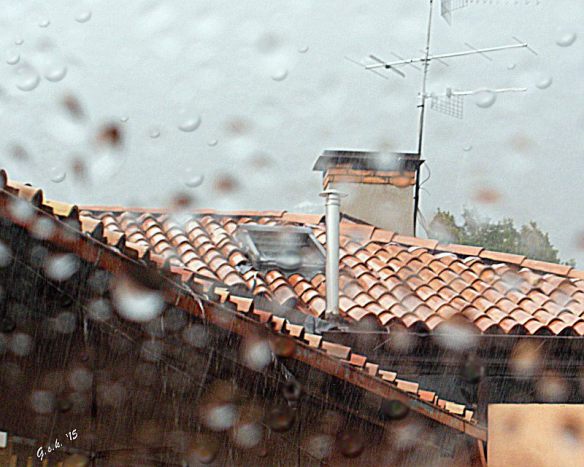Somehow, when it’s 42° C Christmas doesn’t feel quite right. We read the Christmas Carol to the kids and watched Christmas specials on French TV as we decorated the living-room with plastic holly and baubles trying to recreate that special atmosphere.
Packages from America had arrived far in advance and it had been difficult to hide them from the children, but we managed it! On Christmas eve, me mounted the tiny tree putting the gifts under it on the dining room table and hung two beautifully decorated stockings on the window sill filled with candy canes and other goodies.
The next morning the kids were starry-eyed with awe. Gift wrapping flew around the room as they ripped open their packages with laughter. We had our traditional Christmas breakfast and I put a couple of chickens in the oven with dressing for our dinner which we would be sharing with our friends, a French couple with their children and a scholarly gentleman and his wife from Iran. My mincedfruit and pumpkin pies would be a great end to our meal.
There was a moment of silence in all the bustle and I heard that beautiful lilting chant that accompanied us throughout each day we lived in Djibouti. The muezzin reciting the ahdan or call to prayer … Allah’u’akbar floated into the room. Suddenly it felt very much like Christmas to me as I remembered that He who was born that day, was born in a warm desert land, not in a snow drifted winter wonder land.
God is great
there is only one God
hasten to pray
© G.s.k. ‘15
It’s probably not “politically correct” to remember that Islam derives from Judaism and Christianity. Each of the great monotheisms has taken a different path and has its own bright and dark history. The God of Abraham is also the God of Christ and the God of Mohammed. I came across an article on CBS Minnesota .. the school choir master has included in the Holiday Concert repertoire a song about Ramadan to be performed in Arabic. A brave symbol of pluralism in these trouble times. My first Christmas wish for us is that we will be so brave as to embrace the spirit of peace and love which we profess.






